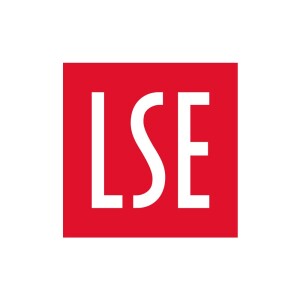![The Global Distribution of Income and the Politics of Globalisation - embedded liberal capitalism [Audio]](https://i1.sndcdn.com/artworks-000534060528-zs2oi2-t3000x3000.jpg)
The Global Distribution of Income and the Politics of Globalisation - embedded liberal capitalism [Audio]
 2019-05-10
2019-05-10
Download
Right click and do "save link as"
Speaker(s): Dr María Ana Lugo, Professor Branko Milanovic, Dr Paul Segal | The panel discuss the evolution of the global distribution of income and political implications, highlighting endogenous forces of rising inequality in liberal capitalism embedded in globalisation. The last quarter century of globalisation has witnessed the largest reshuffle of global incomes since the Industrial Revolution. The global Gini index declined by about 2 points over the twenty-five year period 1988-2013, while within the global distribution of income three changes stand out. First, China has graduated from the bottom ranks, creating an important global “middle” class that has transformed a twin-peaked 1988 global distribution into the single-peaked distribution we observe today. The main “winners” were country-deciles that in 1988 were around the median of the global income distribution, 90% of them representing people in Asia. Second, the “losers” were the country-deciles that in 1988 were around the 85th percentile of the global income distribution, almost 90% of them representing people in OECD economies. Third, the global top 1% was another “winner” whose incomes rose substantially. These three changes open up the following three political issues. In the developing world the big question is how to manage the rising expectations of meaningful political participation in emerging countries like China. In the rich countries, it is how to "placate" the relative losers of the last 30 years so that they do not turn away from globalisation and towards populist anti-immigrant policies. Cutting across all countries, and directly implicated in both of these questions, is how to constraint the rising economic and political power of the global elite. The increasing gap between the Western “top 1 percenters” and the middle classes that is at the origin of many of recent political developments may not be a temporary glitch, but may be driven by endogenous forces of rising inequality in systems of liberal capitalism embedded in globalisation. María Ana Lugo (@MariaAnaLugo) is a senior economist at the Poverty and Equity Global Practice at the World Bank and a council member of the Society for the Study of Economic Inequality (ECINEQ). Branko Milanovic (@BrankoMilan) is Visiting Presidential Professor and LIS Senior Scholar at the Graduate Center, City University of New York. Paul Segal (@pdsegal) is Senior Lecturer in Economics, Department of International Development, Kings College London and Visiting Senior Fellow, International Inequalities Institute, LSE. David Soskice is School Professor of Political Science and Economics at the LSE. The International Inequalities Institute (@LSEInequalities) at LSE brings together experts from many LSE departments and centres to lead cutting-edge research focused on understanding why inequalities are escalating in numerous arenas across the world, and to develop critical tools to address these challenges.
view more
More Episodes
What’s it like to be an animal?
 2023-05-02
2023-05-02
 2023-05-02
2023-05-02
How can we make homes more affordable?
 2023-04-04
2023-04-04
 2023-04-04
2023-04-04
How can we solve the refugee crisis?
 2023-03-07
2023-03-07
 2023-03-07
2023-03-07
012345678910111213141516171819
Create your
podcast in
minutes
- Full-featured podcast site
- Unlimited storage and bandwidth
- Comprehensive podcast stats
- Distribute to Apple Podcasts, Spotify, and more
- Make money with your podcast
It is Free
- Privacy Policy
- Cookie Policy
- Terms of Use
- Consent Preferences
- Copyright © 2015-2024 Podbean.com





